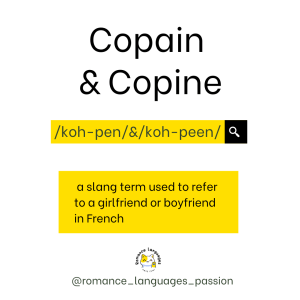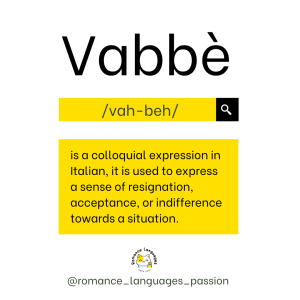Bonjour à tous ! Êtes-vous déjà tombé sur des mèmes linguistiques en ligne ? Ils constituent un excellent moyen de mettre en valeur le caractère unique de différentes langues et de fournir des outils utiles aux apprenants. Les langues romanes semblent être les préférées des créateurs de mèmes en raison de leurs similitudes et de leurs nuances régionales.
Ces mèmes mettent en évidence différentes caractéristiques de chaque langue, fournissent des moyens mnémotechniques pour le vocabulaire et initient les apprenants au langage familier. C'est comme si l'on apprenait en se divertissant ! La communauté des mèmes linguistiques nous rappelle que l'apprentissage des langues peut être amusant et qu'il ne faut pas oublier de rire de temps en temps.
Le mot du jour aide les apprenants à améliorer leurs compétences linguistiques, à élargir leur vocabulaire et à apprendre des expressions culturelles. La diffusion quotidienne rend l'apprentissage des langues habituel et motivant.

Word of the Day: Copain & Copine
1. What It Means In French, “Copain” is a masculine noun that means “close friend” or “boyfriend” depending on the

Mot du jour : Vabbè
1. What It Means “Vabbè” is actually a contracted and informal version of the phrase “va bene” (which means “okay”

Mot du jour : Tennis
Tennis Tenez 1. What is the origin of the word Tennis? The word “tennis” has a fascinating origin story that

Mot du jour : Mande
1. What It Means In Mexico, “Mande” is an interjection that is used to ask someone to repeat or clarify

Mot du jour : Bloquinho
1. What It Means It is a diminutive form of “bloco”, which means “block” or “group”. A “bloquinho” is a
Charles V, Holy Roman Emperor
"Je parle espagnol à Dieu, italien aux femmes, français aux hommes, et allemand à mon cheval"
Médias sociaux
© 2024 romanlangpassion. Tous droits réservés




